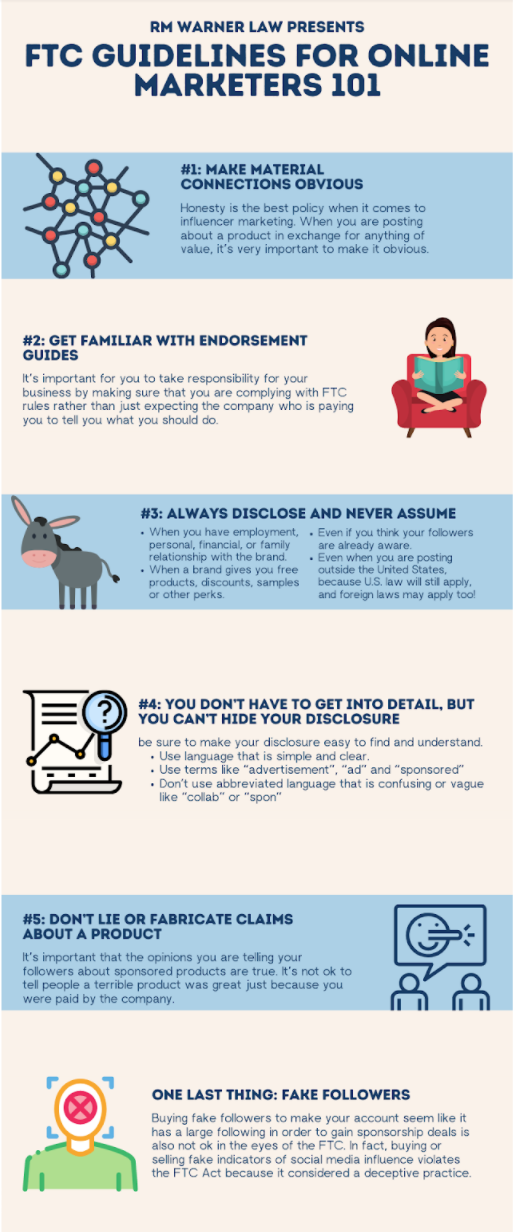Advertising Law: Everything You Need to Know
Advertising Law: Everything You Need to Know

Advertising is one of the driving forces behind the growth of a business. Advertising your business persuades consumers to purchase products or services, increasing sales and boosting the company’s bottom line.
However, connecting consumers with products or services through ads can lead to unfair and unethical business practices that threaten consumer welfare and fair competition among businesses. Advertising law addresses these issues, reinforcing the idea that advertising regulations exist in order to protect both advertisers and consumers.
Protecting Consumers and Promoting Fair Competition
Advertising law constitutes a complex pool of laws and regulations that govern how, when, and where businesses and third parties connect consumers and advertisements. Generally, advertising law requires that ads be truthful, fair, and free of deception. Some advertising laws impact claims advertisers make about their products, how products are packaged and labelled, and how email and social media advertising is conducted. Other laws are specific to certain product categories. The Federal Cigarette Labeling and Advertising Act, for instance, requires that cigarette packages distributed nationwide have specified warning labels.
Advertising laws promotes fair competition among businesses and allows consumers to make better-informed purchase decisions.
Government Regulation of Advertising Laws

The federal government and state authorities regulate and enforce advertising laws. The federal government governs advertising through its federal authorities. The Federal Trade Commission (FTC), established by the Federal Trade Commission Act of 1914, is the chief regulatory authority for advertising in the US. The FTC maintains oversight of the advertising industry and is empowered by the FTC act to prohibit misleading or untrue advertisements and prevent deception and unfair business practices in the trade. The FTC also has the remit to develop policies and guidelines concerning the advertising industry. Antitrust, truth-in-advertising and consumer protection are among the slew of laws enforced by the FTC.
State legislation reflects those at the federal level and is regulated by the various attorneys general and district attorneys.
Advertising to Children
Children are a particularly vulnerable group when it comes to advertising a business online. The popularity of the internet has markedly contributed to this. In 1998, in response to the rise in advertising targeting children, Congress passed the Children’s Online Privacy Protection Act (COPPA) that became effective in 2000. COPPA protects the privacy of pre-teens and, among other things, makes it mandatory for websites to require parental consent for the collection and use of their personal data.
Environmental Claims in Advertising Law
The availability of products bearing environmentally friendly claims has increased in the wake of the “green” movement. Marketers of these products can refer to the FTC issued Green Guides, last revised in 2012, which helps marketers of green products avoid deceptive and misleading environmental claims. The Green Guides are not law but are a tool to improve compliance with truth-in-advertising laws when advertising as a business.
Health and Fitness Claims in Advertising Law
Health and fitness is a billion-dollar industry. Countless health products and programs are advertised to provide solutions to health, wellness, and fitness challenges. Federal law requires that advertisers of food, dietary supplements, and other such health-related products provide evidence of any health-related claims they make. The Food and Drug Administration and related government agencies lend expertise and support to the FTC to combat false and deceptive claims.
Guidance From an Expert in Advertising Law
Complying with advertising law is prudent business practice. However, the complex nature of advertising law can make it a challenge for some businesses to do so. Ensure your brand is protected from any business with unethical practices, and remains in compliance with advertising laws, by securing guidance and direction from the advertising lawyers and marketing lawyers at RM Warner Law. Our experienced lawyers are available online to begin discussing your case, or you can reach us toll-free at 1-866-570-8585.
Similar like this
You also might be interested in
Why Hiring an Internet Defamation Lawyer Could Be the Right Move
These days, many of us live part of our lives [...]
Can You Sue an Anonymous Author for Libel? What You Need to Know
The internet makes it easy for anyone to post content [...]
What Does an Internet Law Firm Do? How We Protect Your Online Reputation and Business
How RM Warner Protects Your Online Reputation and Business Navigating [...]
Instagram’s Terms of Service: What You’re Really Agreeing To
Are you guilty of clicking "I Agree" to the terms [...]





